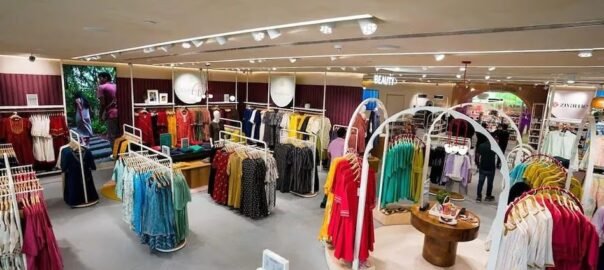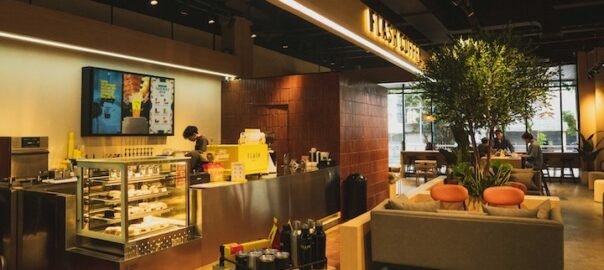Nermin Hassan, head of international cooperation at Egypt Post, tells Hazel King about the operator’s crucial role in the growth of e-commerce and digital transformation in the country
Egypt is a young nation; almost 60% of its 114 million citizens are aged between 15 and 59. This means that a large proportion are digitally native, preferring to use apps and websites to conduct their everyday lives rather than visiting physical stores.
This is evident in the dramatic rise in e-commerce in the country – there were around 20 million e-commerce users in 2017, rising to 62.4 million in 2023, according to Statista. And this trend is set to continue, with Mordor Intelligence anticipating that the Egyptian e-commerce market will grow from US$9.05bn in 2024 to US$18.04bn in 2029 (a CAGR of 14.8%).
To keep pace with this digital penetration, the Egyptian government launched its Vision 2030 program in 2016 (see Vision for the future at the end of this article), which aims to achieve ‘comprehensive sustainable development’ and ‘balanced regional development’. As part of this program, it announced its Digital Egypt project in 2020, which aims to get every citizen online. A major player in this project is the country’s incumbent postal operator, Egypt Post.
“Egypt Post’s business is all about the facilitation of postal, financial and government services and the ease of access to those services for our citizens,” explains Nermin Hassan, the organization’s head of international cooperation. “We are in every territory across the country and so we’re best placed to provide these services to every person. For some entities that are only located in big cities, citizens in villages would have to travel hundreds of miles to access those services. Now they can opt in to the service from their nearest post offices, ensuring inclusivity for everyone.”
As lettermail volumes decline, we need to find revenue-generating opportunities
Business diversification
Egypt Post has undergone a huge transformation in the 160 years since it was launched, growing its network to more than 4,600 post offices across the nation as well as a mobile post office car and more than 3,000 ATMs, two mobile apps for financial services and one for e-commerce and track and trace.
“In 2000, Egypt Post began focusing on automating its services for both financial and postal services, and this journey really picked up pace in 2016 when all the sorting centers were automated with scanners and track and trace technology for all lettermail items – both domestic and international,” says Hassan. “We also introduced electronic payment cards with Visa and Mastercard, and we produced our own mobile app for financial services.”
The post has grown the number of services it offers, from 15 in 2016 to over 170 today, including many government services such as document checking and collecting tax payments. “We also offer services for microlending companies, doing the collection of legal documents,” Hassan continues. “Once the loan is approved, we send an SMS confirmation to the citizens to collect the loan. Loan repayments can also be handled by Egypt Post, vastly improving financial inclusivity for Egyptians.
“As lettermail volumes decline, we need to find revenue-generating opportunities that counter the rising costs of delivering letters under our universal service obligations,” Hassan continues. “For example, we are the number-one provider for pension payments – there are seven million government pension payments in Egypt, and we handle 5.5 million of them.
“We have also begun a new project to digitalize legally binding correspondence such as court documents and taxation letters. There is a requirement for proof of delivery of such documents and, in line with Egypt Vision 2030 for the digitalization of all government entities, we are helping to remove the physical side to G2C [government to citizens] and B2C correspondence operations. Since 2020, we have explored the development of electronic registered mail services in Egypt. We have been working on finding the right technology service provider and developing the national legal framework for this service that states that electronic registered mail has the same legal impact as physical mail, and this legal framework was issued early in 2024.”
Egypt Post is now preparing for the launch of this service – called Bareedi (‘My post’ in Arabic) – in Q2 2025. It will make the operator an important component of the digital public infrastructure across Egypt (see Digital mail solution at the end of this article). “For each government and business entity that wants to communicate digitally with citizens with official documentation, they can contact the citizen through Bareedi,” explains Hassan. “Egypt Post is required by law to be the entity that manages and modernizes the infrastructure of mail all over Egypt in line with the general policy of the Egyptian government, so Bareedi is a fundamental part of this modernization, which aligns with Egypt Vision 2030 and the Egypt National Climate Change Strategy 2025.”
Egypt Post has also established a company with Bahrain’s Beyon Connect, called Post Connect, to deploy the digital postbox solutions. Hassan explains, “Egypt Post, working under the direction of the Egyptian Ministry of Communication and Information Technology, has adopted the digital transformation of the infrastructure of mail to support the wider digital transformation of the country. Everyone expects Bareedi to be a real game-changer because it will enable everyone to interact more easily with the government and vice versa.”
With the new electronic registered mail solution, more than 200 million paper documents are expected to disappear
She adds, “With the new electronic registered mail solution, more than 200 million paper documents are expected to disappear once fully implemented. We aim to have 30 million citizens using the service in the next three years, and this will have benefits for our finances (digital services are much cheaper to operate than our current subsidized physical mail service) as well as the environment.”
Supporting e-commerce
Alongside the digital transformation, Egypt Post has focused on supporting small and medium sized businesses (SMEs) in their e-commerce growth. Micro, small and medium enterprises (MSMEs) make up 90% of the private sector in Egypt, according to the country’s Micro, Small and Medium Enterprises Development Agency (MSMEDA), but their uptake of e-commerce platforms has been slow.
In a joint report published in 2017, the United Nations Conference on Trade and Development and the Egyptian government found that only 3% of the micro and small enterprises that used the internet had made online purchases, and only 5% had received orders online for their products. This led to the launch of the National E-commerce Strategy for Egypt, which outlines a set of recommendations that support decision-making policies in key aspects of e-commerce and help to overcome the challenges facing e-commerce in Egypt.
Hassan confirms, “The focus of the government has been more and more on e-commerce and the enablement of SMEs, especially in the domestic market, and we have developed several products to support SMEs. These services include the logistics and delivery of parcels, the cash-on-delivery payment collection and the deposit of payments into the SME’s account.
“If you are an SME, you simply go to an Egypt Post office or request pickup through the Wassalha [‘Deliver it’ in Arabic] app to send your parcel and let the staff know how much money needs to be collected upon delivery. The money will be deposited in the SME’s account on the same day as delivery. This has been a big success for SMEs in Egypt.
“I believe that e-commerce is a very strong enabler for the development of the economies in developing countries, and I think our focus will continue to be on enabling SMEs to reach international markets as well as domestic.”
Competition in the courier, express and parcel market in Egypt is stiff, with the top five companies having 57% of the market share, according to Mordor Intelligence. Egypt Post is one of these five, so how does it continue to position itself as a top-choice CEP provider for SMEs and e-commerce businesses?
“We focus on doing what we are good at in the optimum way, and our focus is on the recipient and sender,” asserts Hassan. “Our strong belief is that if you provide a very good quality of service at an affordable rate with stability of performance, you will prevail.
“All the private companies operating in Egypt right now are focusing on certain districts and locations where you’ll find the big volumes. Our focus is on the continuity of the delivery of mail to everyone and everywhere in Egypt at an affordable price, with different options depending on your needs. From the sender perspective, they want easy access to services, guaranteed security of parcels and cash collection on delivery, and we provide a very competitive service.
“By focusing on building and enhancing our network and customer experience, as well as improving delivery times and keeping the costs as low as possible, we can compete.”
The post has also established an affiliate company – PDC – which is focused on providing e-commerce delivery, mainly in the B2C market. “The company is growing and is providing services for large logistics players, with parcel volumes continuing to rise. They are an independent company but they have a synergy of operations with Egypt Post to reach every citizen through our network,” Hassan adds.
E-commerce is a very strong enabler for the development of economies in developing countries
Growing out-of-home networks
Cash on delivery remains a popular choice for online shoppers in Egypt. According to payment orchestration platform NORBr, 57% of e-commerce transactions were conducted in cash in 2022, so at-home delivery remains dominant. “Most e-commerce customers in Egypt still opt for at-home delivery, and services such as pharmacy also offer door-to-door delivery for medications,” Hassan says. “PUDO can be easily implemented at our post offices. The service is available but it is not very popular.”
However, Egypt Post is looking to capture a slice of the rapidly growing parcel locker market in the Middle East and Africa (MEA). According to Business Market Insights, the MEA smart parcel delivery locker market is expected to grow from US$34.74m in 2021 to US$79.11m by 2028, led predominantly by the changing needs of a younger population.
Hassan confirms, “We have found a need for parcel lockers for the new segment of e-commerce customers who make a lot of orders but are not at home in the daytime. It is a new lifestyle for the younger generation in Egypt. To reduce the number of missed deliveries we’re experiencing, we’ve launched a pilot project of 200 parcel lockers in Cairo and we expect this to be implemented in Q3 this year.
“We’re working with Omnic on this project, which will improve the convenience of parcel delivery for our customers. If it proves successful, we will expand the network.”
Author Credits- HAZEL KING, Parcel and postal technology INTERNATIONAL










